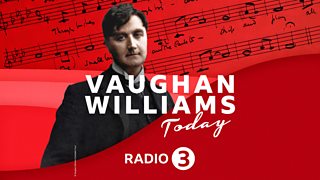
Rebuffs and Recognition
Kate Molleson delves into a period when Charles Ives starts to promote his epic Piano Sonata No 2.
Kate Molleson delves into a period when Charles Ives starts to promote his epic Piano Sonata No 2.
Charles Ives is considered a leading American composer of the early 20th century. Known for many musical innovations, his was a unique voice, a pioneer who combined elements of Western and American music traditions. He’s also been called a Yankee Maverick and much of his creative life was spent in obscurity. Marking the 150th anniversary since his birth, Kate Molleson shines the spotlight on the life and music of Charles Ives. This journey begins in Danbury where Ives grew up, going on to study at Yale, then working in Insurance in New York, and coming to a close in the mid twentieth century. In those final decades, and largely due to ill health, Ives had stopped composing. Ironically, it was at this point when his creative endeavours had ceased, that his music started to generate much interest.
Charles Ives had numerous health problems late in life, including a heart attack. Yet despite his doctor’s warning, he didn’t slow down at all. Not only was he working still in insurance, composing many substantial works too, but he was also becoming more active as a writer. He had written plenty of articles on insurance before, but now there were essays too on the role of art. He was interested in other writers as well, including the transcendentalists Emerson, Hawthorne, Alcott and Thoreau, each of whom became a title of a specific movement of Ives’s unconventional and reflective Piano Sonata No 2. He had this work published and sent out over a hundred copies to start interesting people in his music. In the main the replies were negative, but he did receive three positive replies, which in turn lead to the beginnings of a growing group of followers. Although late in life, Ives now began to get recognition for his music.
At the River
Dawn Upshaw, soprano
Orchestra of St Luke’s
John Adams, conductor
Serenity
Dawn Upshaw, soprano
Orchestra of St Luke’s
John Adams, conductor
Piano Sonata No 2: Concord, Mass., 1840-60 (Thoreau)
Joonas Ahonen, piano
Sharon Bezaly, flute
A Symphony. New England Holidays (excerpt)
Melbourne Symphony Orchestra
Sir Andrew Davis, conductor
Two Little Flowers
Gerald Finley, baritone
Julius Drake, piano
Romanzo di Central Park
Gerald Finley, baritone
Magnus Johnston, violin
Julius Drake, piano
Violin Sonata No 2
Hilary Hahn, violin
Valentina Lisita, piano
Produced by Luke Whitlock
On radio
Broadcast
- Thu 17 Oct 2024 16:00Βι¶ΉΤΌΕΔ Radio 3
Vaughan Williams Today
Beethoven Unleashed – the box set
What was really wrong with Beethoven?
Composers A to Z
Who knew? Five eye-opening stories from Composer of the Week
Five reasons why we love Parry's Jerusalem
What is the strange power of Jerusalem which makes strong men weep?
A man out of time – why Parry's music and ideas were at odds with his image...
The composer of Jerusalem was very far from the conservative figure his image suggests.
Composer Help Page
Find resources and contacts for composers from within the classical music industry.





